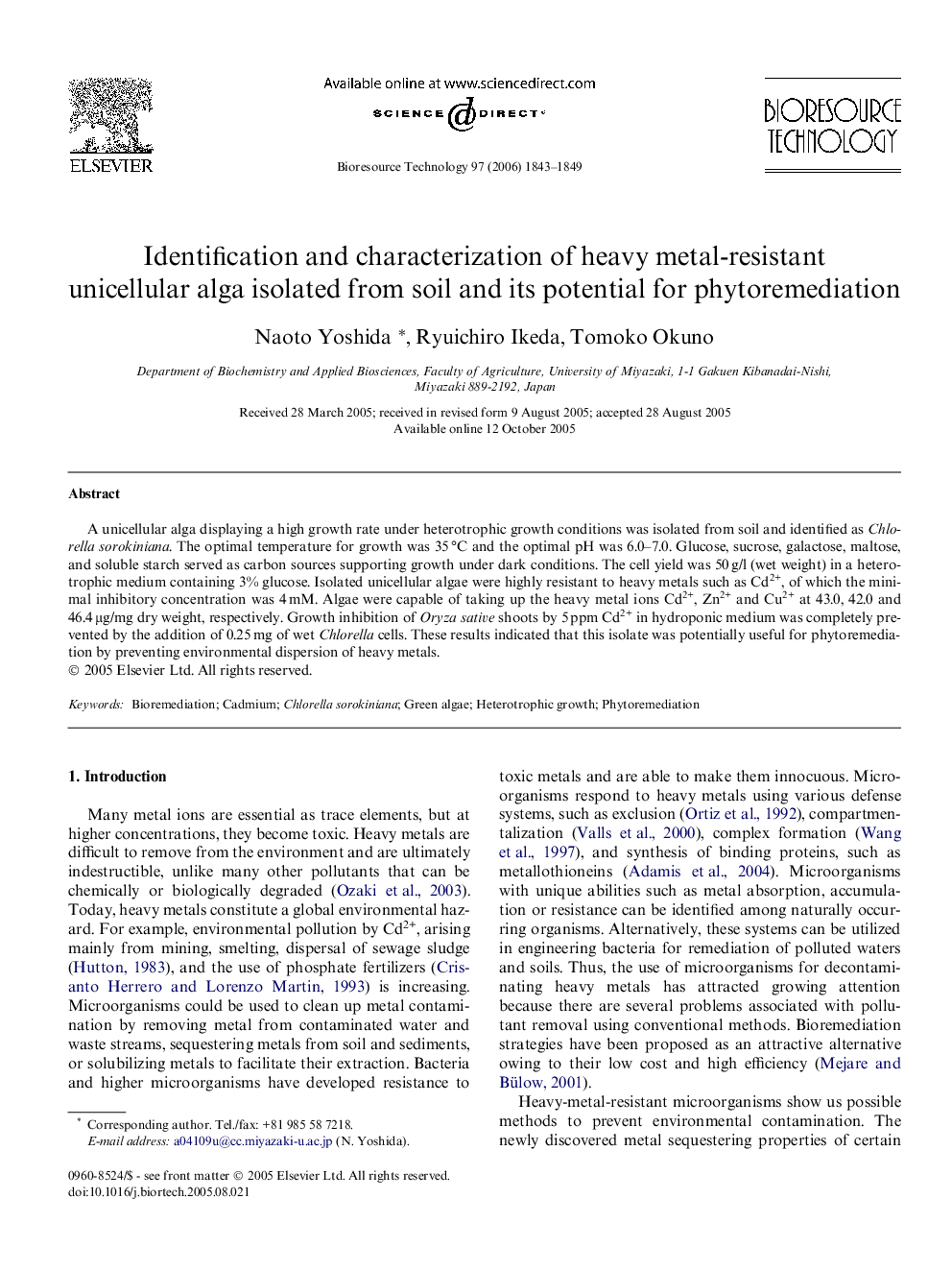| Article ID | Journal | Published Year | Pages | File Type |
|---|---|---|---|---|
| 685450 | Bioresource Technology | 2006 | 7 Pages |
A unicellular alga displaying a high growth rate under heterotrophic growth conditions was isolated from soil and identified as Chlorella sorokiniana. The optimal temperature for growth was 35 °C and the optimal pH was 6.0–7.0. Glucose, sucrose, galactose, maltose, and soluble starch served as carbon sources supporting growth under dark conditions. The cell yield was 50 g/l (wet weight) in a heterotrophic medium containing 3% glucose. Isolated unicellular algae were highly resistant to heavy metals such as Cd2+, of which the minimal inhibitory concentration was 4 mM. Algae were capable of taking up the heavy metal ions Cd2+, Zn2+ and Cu2+ at 43.0, 42.0 and 46.4 μg/mg dry weight, respectively. Growth inhibition of Oryza sative shoots by 5 ppm Cd2+ in hydroponic medium was completely prevented by the addition of 0.25 mg of wet Chlorella cells. These results indicated that this isolate was potentially useful for phytoremediation by preventing environmental dispersion of heavy metals.
